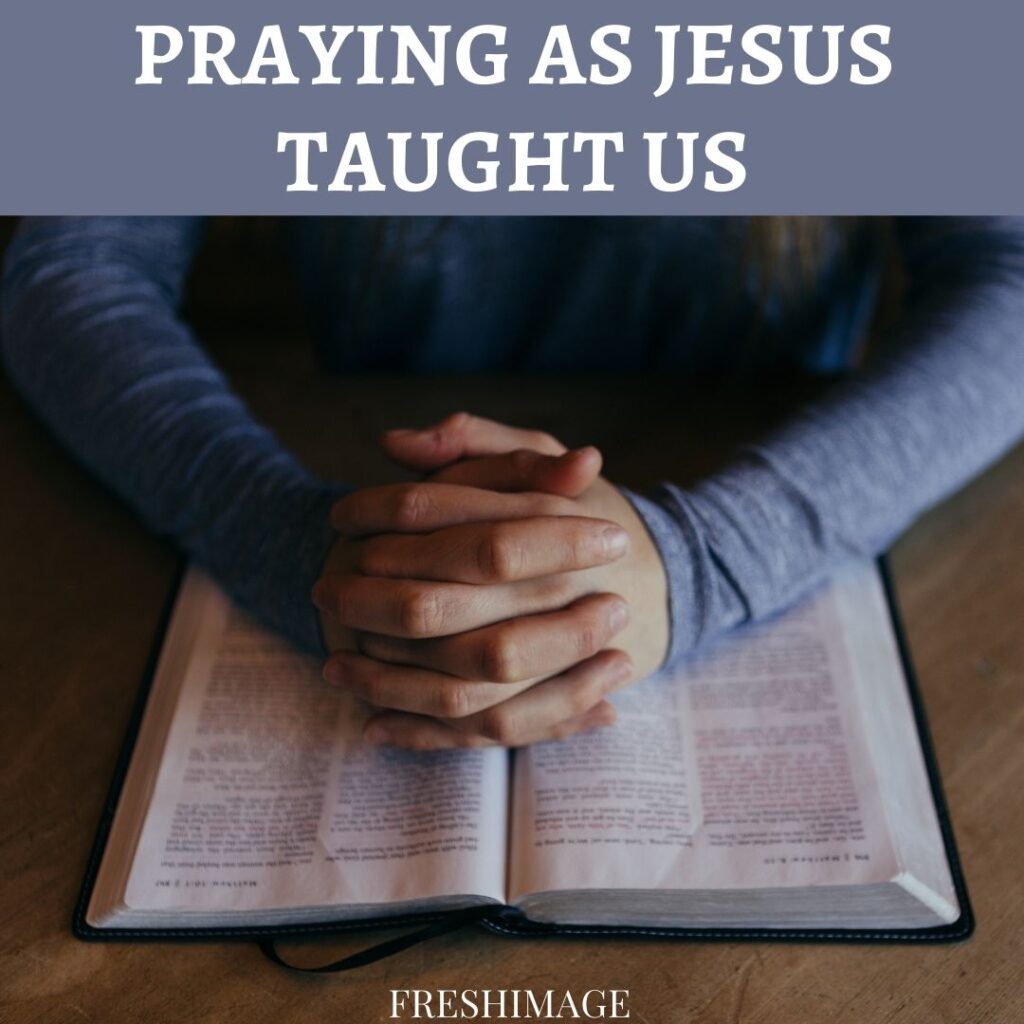
It may not be so surprising to us that when Christians are asked (be it in survey or interview), if there is one area in their life that they struggle with or that they wish they could improve upon, many will respond with answers that relate to the topic of prayer. For many of us, prayer can be a hard thing to wrap our minds around, and we may find ourselves asking: what is prayer really, and how am I supposed to pray? It is refreshing, therefore, to find the disciples asking Jesus for instruction on this topic in the Gospels.
Many times, we fall into the mindset that prayer must take on a certain form, that some sort of formula should be followed in order to pray correctly, or in order for it to count so to speak. However, though we may speak about what the proper approach may be to prayer (as we will do in reflecting upon the Lord’s Prayer below), prayer is not first formulaic, but conversational. Put simply, prayer is nothing other than speaking with God, or as St. John of Damascus wrote: “Prayer is the raising of one’s mind and heart to God…” (CCC 2559). The problem, then, is not that prayer is a complicated endeavor, but rather, quite often the problem is that we do not see God as someone we would like to talk to. Consider for a moment that it is the most natural thing in the world for us to communicate with those to whom we are close. And how is it that we grew close to them? By spending time with them. Therefore, if we want to improve our prayer life, Thomas Merton would suggest that the first thing we need to do is ‘take the time.’
For the answer of how we should pray, we may look to the Lord’s Prayer. For if we are to pray rightly, St. Augustine of Hippo tells us, “we say nothing than what is already contained in the Lord’s Prayer” (Letter 130, p. 22). To be brief, let us look at the basic structure of the Lord’s Prayer. To begin, it is a unitive prayer, for we say Our Father, not my Father, suggesting that it is only united with Christ that we have truly been made sons and daughters of God, able to call Him Father. Next, we find three petitions asking for the glory of God to be made manifest in our world through our lives, and therefore, draw us to Him: “Hallowed be Thy name…Thy kingdom come…Thy will be done.” The next two petitions: “Give us…forgive us…” help us recognize our dependence upon God for our life here and now ‘to be fed and healed from the division of sin,’ (cf. CCC 2805), and the last two petitions recognize that our life is not limited to the here and now, but we are meant for eternal life “lead us not…deliver us…” In sum, we may recognize then, that the Lord’s Prayer, is, as Tertullian says, the ‘summary of the whole gospel,’ for its words proclaim the human drama in its proper context; i.e. in relation to God.
Of course, underlying this understanding of prayer is the Christian understanding of Who God Is. That is, the Christian conceptualization of God is that God is both totally transcendent and completely immanent. Therefore, because God is totally transcendent, prayer must be centered upon and establish its basis upon Him (as in the first portion of the Lord’s Prayer). Additionally, because God is totally immanent; the reality of which displayed most beautifully in the Incarnation and mysteriously perpetuated by the Holy Spirit; we are able to speak to God as One Who understands us (cf. Hebrews 4:15); is close to us (cf. Matt. 28:20); and Who we have been assured cares for us (cf. Matt. 10:30 & Luke 12:6) (as in the latter part of the Lord’s Prayer).
My friends, we have been created for perfect unity with the God Who Created us and it is only in unity with Him that we are fully alive. Moreover, the very same God Who created us desires so intensely that we should possess the fullness of life that He became one of us so that He could be one with us. If we take this to be true, prayer can quickly go from something uncomfortable and foreign, to that which it should be and in reality is; the most natural thing for us to do. For in reality, prayer is the means to living the life we have been created for starting today.
Your servant in Christ,
Tony Crescio is the founder of FRESHImage Ministries. He holds an MTS from the University of Notre Dame and is currently a PhD candidate in Christian Theology at Saint Louis University. His research focuses on the intersection between moral and sacramental theology. His dissertation is entitled, Presencing the Divine: Augustine, the Eucharist and the Ethics of Exemplarity.
Tony’s academic publications can be found here.